- Home
- Vladimir Nabokov
Man From the USSR & Other Plays Page 2
Man From the USSR & Other Plays Read online
Page 2
Incidentally, Amundsen’s victory in the race to the South Pole was, in a manner of speaking, not permanent. A couple of years ago the pole’s exact locus was found to have shifted so that it had to be “rediscovered” and marked anew. That task was undertaken by the journalist Hugh Downs, with a strong assist from resident cartographer Loreen Utz of the U.S. Geographical Survey, for a segment of the television program 20/20(whose programmers presumably realized that the pole has not lost its magnetism).
If, in The Pole, art in a sense deliberately imitates life, there exists also a perfect case of the inverse process: life (unknowingly) imitating art. Not only was Nabokov’s politico-military premise in The Waltz Invention prophetic of current issues and events, but the play recently had a hauntingly specific echo in the Italian press. We recall how Waltz threatened to explode a substantial and fairly distant mountain if his conditions were not met by the government, and then, in the “preliminary” or “dream” ending, proceeded to do so. Not long ago, a chauffeur appropriately named Antonio Carrus, residing in a village near Genoa, telephoned the major Italian news agency to predict a good-sized telluric tremor in distant Pozzuoli within the following twenty-four hours. After the event had duly occurred, he retelephoned to “claim” his quake, but would give no explanation of his prescience. “It might be a device, a discovery, a system,” he said. “I shall explain only when the government begins to take me seriously.” One can, in translation, almost hear Waltz speaking, so similar are the situation, the manner, and the words.
In addition to those already discussed, certain other Nabokovian themes, or subthemes, make preview appearances in the plays. In The Grand-dad, in particular, we find embryos of images that were to figure prominently in later works of Father’s. I have already mentioned the executioner—the prototype of M’sieur Pierre—whom de Merival, the Passerby, re-encounters in The Grand-dad. The play’s surreal microcosm is curiously paralleled by the burgeoning nightmare of “A Visit to the Museum.” The gradual inklings, the “strange associations” de Merival begins to have as he is told how Grand-dad fondles the stems of lilies, to all of which he has given names “of duchesses, of marquesses,” and how he has hurled Juliette’s juice-incarnadined cherry basket into the stream are a chilling re-evocation of Revolutionary France akin to the protagonist’s hallucinatory progression in “Visit” through the museum’s rooms and into a post-Revolutionary Russia.
The burning scaffold that allows de Merival to escape is a portent of the fires that will flicker or rage in other works. In Lolita, Humbert’s whole destiny is changed by the conflagration that destroys the house where he would have lived. The burning of the “Baronial Barn” is the “contrived coincidence” that sets the scene for the crucial encounter between Van and Ada. Fire in Transparent Things spreads from theme to obsession to resolution.
As de Merival flees from the blaze he plunges amid “torrents of smoke,” “rearing steeds,” “running people.” One recalls Anton Petrovich’s headlong tumble to salvation down the ever steepening, elder-overgrown slope in “An Affair of Honor.” The “falling-through” theme, of course, was also to develop into the metaphysical traversal of solid objects, of levels of time and space, in Pale Fire and Transparent Things.
I stated at the outset of this introduction that particular recurring traits of Father’s plays, as of his other works, merited discussion. Having examined them, however briefly, let us ponder where they lead.
As I suggested, there emerge certain fundamental considérations—two in particular—regarding Nabokov’s work. The first is his fascination with transforming life into art on the chessboard of combinational possibilities. Just as he invented “scientifically possible” butterflies and “a new tree” (at Ardis),4 so he recombined life into a fantastic but plausible reality. “I do not doubt,” said Nabokov, “that there exists an intimate bond between certain images of my prose and the brilliant but obscure chess problems—magical enigmas—each of which is the fruit of a thousand and one nights of insomnia.”5
Nabokov’s point of departure may be pure conjecture (as in Laughter in the Dark, Despair, Lolita, The Waltz Invention), personal experience transformed (as in Mary and The Gift), a deliberate doubling of reality (as in Ada, Pale Fire, and, for a moment, The Event), a refraction of private fantasy (as in The Defense, Glory, The Man from the USSR), the personal adventures of others (as in “Terra Incognita,” “Lance,”The Pole), or history (as in The Grand-dad and, through a lens, in Bend Sinister). But his destination is a recombination of those materials into a kind of Hegelian triad (perceived by Nabokov as a spiral). The thesis of the triad (the basic plot, event, or idea) is dissected under the artist’s microscope and made to reveal its mysteries and ambiguities, in which one perceives the antithesis (the antiterra incognita, the warp of time and space peeking through the fabric of the fiction). When superimposed and melded, the first two elements, or coils, of the triad yield the synthesis (the elements recombined into an original artistic whole).
“I discerned in nature the non-utilitarian delights that I sought in art,” Nabokov said. “Both were a form of magic, both were a game of intricate enchantment and deception.”6 Who but an artist or a deity can rearrange reality? It is a rare creative thrill. But such recombination would be a sterile exercise if performed for its own sake. The doubling, the ambiguity discussed earlier, is not simply a game. In considering the plays included in this volume, we have seen that it appears fleetingly in The Man from the USSR, gives an unexpected twist to The Granddad, and momentarily warps time and stage in The Event. Elsewhere, we are allowed a closer peek. In The Gift, for instance:
The following day [(Alexander) Chernyshevski] died, but before that he had a moment of lucidity, complaining of pains and then saying (it was darkish in the room because of the lowered blinds): “What nonsense. Of course there is nothing afterwards.” He sighed, listened to the trickling and, drumming outside the window and repeated with extreme distinctness: “There is nothing. It is as clear as the fact that it is raining.”
And meanwhile outside the spring sun was playing on the roof tiles, the sky was dreamy and cloudless, the tenant upstairs was watering the flowers on the edge of her balcony and the water trickled down with a drumming sound.
If it is as clear as the fact that it is raining, it is not clear at all, for the rain is an illusion. Does that mean there might be something?
The sensation of fragile, twinned reality is more explicit in Pale Fire. While clinically dead, Shade sees a fountain, rather than the more common tunnel. His fascination with this phenomenon leads him to track down a woman who, according to a newspaper item, has had the same experience. Only it turns out she had seen a mountain, and not a very convincing one at that: “Life Everlasting—based on a misprint.” There follows a curious reversal of the Chernyshevski syllogism:
I’m reasonably sure that we survive
And that my darling somewhere is alive
As I am reasonably sure that I
Shall wake at six tomorrow, on July
The twenty-second, nineteen fifty-nine,
And that the day will probably be fine;
So this alarm clock let me set myself,
Yawn, and put back Shade’s “Poems” on their shelf.
He is killed the same afternoon, shortly after having finished his poem. The reasonable certitude of his daughter’s surviving in an afterworld is therefore just as precarious as that of his being alive the following morning. (The implication for Chernyshevski is: yes, there may be something; for Shade it is: no, chances are there is nothing.)
The deduction in Shade’s case, however, is individual and not conclusive. Nabokov had a profound conviction, revealed in certain poems of his, in passages of The Gift and Transparent Things, and elsewhere, that he carried within him a knowledge of otherworldly truths to which others could not be made privy. It was a conviction that gave him a unique serenity (not unlike that of Scott) in the most trying circumstances, and of which he act
ually spoke publicly only in one interview. To the question, “Do you believe in God ?” Father replied: “To be quite candid—and what I’m going to say now is something I never said before, and I hope it provokes a salutary little chill—I know more than I can express in words, and the little I can express would not have been expressed, had I not known more.”7
Before he dies Shade does, for a moment, speak for Nabokov the artist. The essence of Shade’s art is, as we have learned in Canto Three,
...Making ornaments
Of accidents and possibilities.
Now, at the end of the fourth and final canto, he goes further:
...I feel I understand
Existence, or at least a minute part
Of my existence, only through my art,
In terms of combinational delight;*
And, if my private universe scans right,
So does the verse of galaxies divine
Which, I suspect, is an iambic line.
The plays open a second, related, Nabokovian vista as well, an aspect of his works even less widely understood than the “combinational delights” just discussed.
To quote Martin Amis, Nabokov depicts his nastier characters with “such plangency ... such moral unease,” writing always more in their expiation, so that “the moral picture is always clear.... But to take the nastiness of the novels and impute it to Nabokov in any way seems to me futile. [It is] just part of what Nabokov is interested in, [this] possible nastiness of Art.”8
There are those who, like the late Edmund Wilson, with his imputations of Schadenfreude, consider Nabokov to have been a heartless puppeteer, aloof and indifferent to the misfortunes of his characters and of the world around him. Those who were closely acquainted with him know that nothing could be further from the truth. And for those who were not, a careful and sensitive reading of Nabokov reveals that he was (as Professor Denis Donoghue puts it) “extraordinarily tender toward broken things, maimed lives, and people who are completely ignorant of themselves.”9
How pathetic are the elderly, evicted, not very pleasant Oshivenskis, in the last act of The Man From the USSR. Some of their attitudes may be suspect, and Oshivenski may detest that violin; but now they are penniless and are about to become homeless. Fyodor Fyodorovich arrives with the news that he has found them quarters at a different address. But the address is in Paradise Street, care of Engel. There is more than parody to “Paradise.”10 There is an echo here of Oshivenski’s line immediately prior to Fyodor’s arrival: “We’ll meet in Paradise, God willing,” and of an exchange that took place between the Oshivenskis a few minutes earlier:
MRS. OSHIVENSKI
And where are we supposed to go now? Oh my dear God....
OSHIVENSKI
We’ll move straight into the Kingdom of Heaven. At least there you don’t have to pay the rent in advance.
These words also foreshadow Kuznetsoff’s penultimate speech: “Olya, I’m going to the USSR so that you will be able to come to Russia. And everybody will be there.... Old Oshivenski living out his days, and Kolya Taubendorf, and that funny Fyodor Fyodorovich. Everybody.” This suggests that they are all going to the same destination; that the Oshivenskis’ new address will in fact be not Paradise Street, but Paradise, care of Angels; and that Kuznetsoff’s voyage to the USSR (which will never again become “Russia”) will be his last. The violin, that pitiful fourth-rate violin, plays again; Kuznetsoff pauses, recognizes the tune, and the tenderness that it has evoked and he has suppressed all through the play swells, on the final page, to the surface.
This whole, delicate work is unique, with its subtle play of nuance set in the special atmosphere of the Berlin emigration that Father knew so well. In addition to the bad violin there is Kuznetsoffs bad German, his colorful Russian, his basically rather amateurish secret agenting. There is the serene, resigned, desperately loving Olga Pavlovna, who is the only person to bring cash to the hopelessly indigent Oshivenskis. There is also the lighthearted Fyodor, whose statement (at the beginning of the play) that he “was once an artillery captain” is curiously echoed by Kuznetsoff in the final two lines:
OLGA PAVLOVNA
(pressing against him)
And you, Alyosha—where will you be?
KUZNETSOFF
(...somewhat mysteriously)
Listen—once upon a time there lived in Toulon an artillery officer, and that very same artillery officer—(They leave.)
Has he made some secret arrangement with Fyodor? Is Fyodor being groomed to march, like Napoleon (who, as an artillery officer, had lived in Toulon), on Russia? Will he be more successful? Or is Kuznetsoff simply confirming the omniscience he has already hinted at (“Everybody will be there....”): I shall be in a place from where I shall know, and perhaps can even pull some strings.
The reactions of some 1985 readers of The Man from the U.S.S.R. compel me to underline an aspect of that play of which those without a frame of reference may be only dimly, if at all, aware. To the characters of the play, however, it is immediate, essential, all-pervasive.
Many of us have lived through crises and upheavals, but more often than not as distant spectators or else only temporary, or marginal, participants. In most cases our outlook is conditioned, no matter how much we may protest about sundry matters, by a security of foundations and a constancy of parameters. We may grow alarmed when the framework creaks or sways, but we seldom if ever truly imagine what it would be like to have our souls and bodies either caged or torn up by the roots, implacably, irrevocably. Yet the microcosm of the stateless Russian émigré in Europe in the twenties and thirties was totally shaky, rootless, and frightening. Nothing was certain and nothing was constant. His Russia was gone, the Europe to which he had fled was heaving with the tremors of imminent cataclysm, his status was spectral, his livelihood and his survival were a matter of wits and luck. The story and the atmosphere of the emigration will, in time, be codified by the imprimatur of perspective, but the events are too recent, and their historical niche too extraordinary.
On this nightmarishly precarious stage the play acquires a very special aura. There is far more here than nostalgia for the Motherland. The real backdrop for the shabby, bittersweet, temporary existence of the characters is one of terror and of doom. After examining other aspects of the play we must return perforce to the tragic realization that the destiny of these people, with all their dreams, their quirks, their foibles, is sealed. And only the less perceptive will fail to understand that the protagonist is not only an anti-Bolshevik, but an ardently courageous one; that his imminent journey to Russia will in all probability be his last; that he is very human, a little pathetic, and has, incidentally, missed his train.
Let us look again, through a different facet of the prism, at The Event. The key scene I have already once discussed may be surreal, but it is rich in very real compassion. The sometimes shrewish Lyubov’ suddenly becomes human, gentle, understanding. Both she and Troshcheykin struggle to hold on to this aberration of space and time. The magic moment begins to slip away from both of them. She pronounces Tatiana’s famous line from Eugene Onegin:
Onegin, I was younger then,
I daresay, and better-looking
and it is over. Money problems, the horrid maid Marfa, the fear of Barbashin all return to haunt them. But Lyubov’ has had time to say (and nobody can take this away): “Our little son broke the mirror with a ball today. Hold me, Alyosha. Don’t lose your grip.” The son is long since dead. The only balls around are those being used as props for the portrait of an extraneous child. And if anyone broke a mirror it was that child. Troshcheykin’s grip loosens. The mad turn-of-the-century chess master Rubenstein preferred to play facing not his adversary but an empty chair and a mirror where he saw “his reflection or, perhaps, the real Rubenstein.”11 The mirror—and the spell—are broken. Which was the real Troshcheykin?
The Pole is a play with a more constant sense of pathos. The noble sportsmen-scientists are doomed. Kingsley (though
it is Scott who, in other respects, foreshadows the later Gregson) is delirious. The bleak and unambiguous polar surroundings (subsequently, perhaps, deliberately recombined into the vacillating tropical trappings of “Terra Incognita”) are a background for the sometimes surreal atmosphere created within the human soul. The polar nightmare, incidentally, is somehow reminiscent of the eerie visions and sensations reported by the early Everest mountaineers and even by Whymper, whose party saw fogbows of mysterious pattern on the Matterhorn (was it all caused by lack of oxygen and conditioning, or was it also the newness of the mountain adventure—and the polar one—to the human psyche?).
Finally let us turn again, for a moment, to The Grand-dad. Just as conjecture, adventure, and autobiographical experience were the raw materials for the combinational process elsewhere, here the materia prima is historical, while the central theme is a perennially current moral issue.

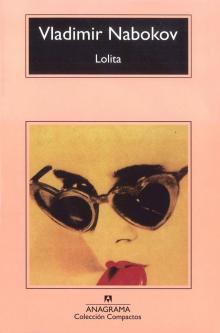 Lolita
Lolita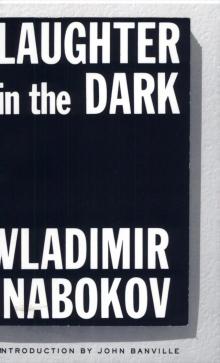 Laughter in the Dark
Laughter in the Dark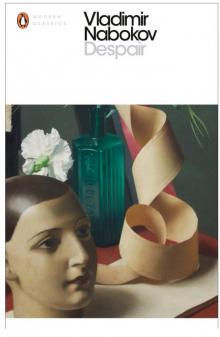 Despair
Despair Mary
Mary The Enchanter
The Enchanter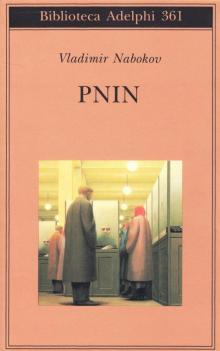 Pnin
Pnin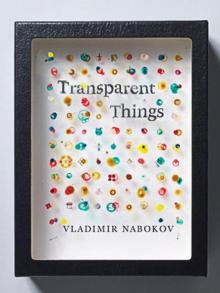 Transparent Things
Transparent Things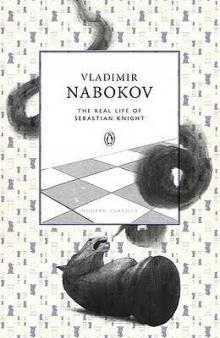 The Real Life of Sebastian Knight
The Real Life of Sebastian Knight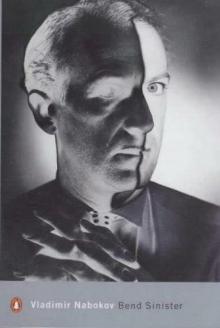 Bend Sinister
Bend Sinister Invitation to a Beheading
Invitation to a Beheading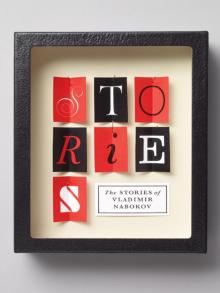 The Stories of Vladimir Nabokov
The Stories of Vladimir Nabokov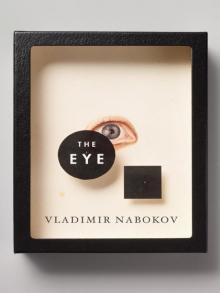 The Eye
The Eye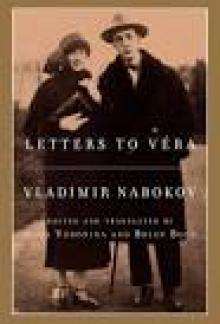 Letters to Véra
Letters to Véra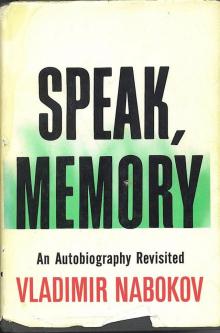 Speak, Memory
Speak, Memory The Gift
The Gift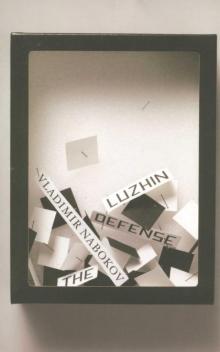 The Luzhin Defense
The Luzhin Defense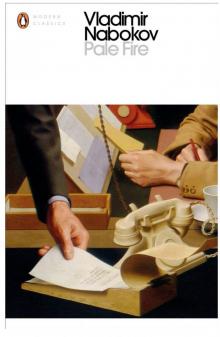 Pale Fire
Pale Fire Glory
Glory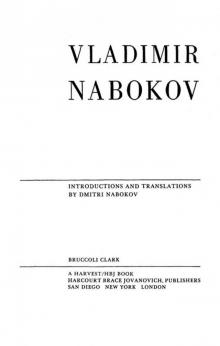 Man From the USSR & Other Plays
Man From the USSR & Other Plays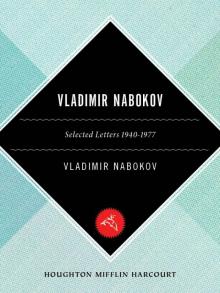 Vladimir Nabokov: Selected Letters 1940-1977
Vladimir Nabokov: Selected Letters 1940-1977 Strong opinions
Strong opinions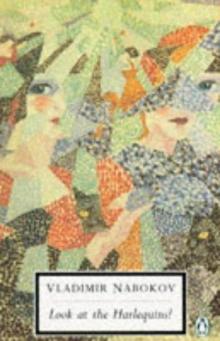 Look at the Harlequins!
Look at the Harlequins!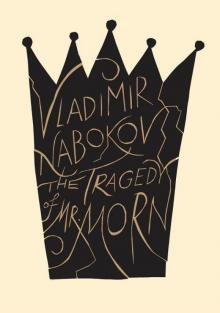 The Tragedy of Mister Morn
The Tragedy of Mister Morn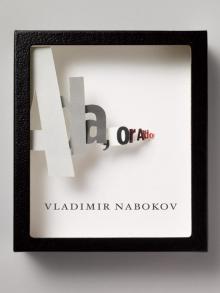 Ada, or Ardor
Ada, or Ardor Lectures on Russian literature
Lectures on Russian literature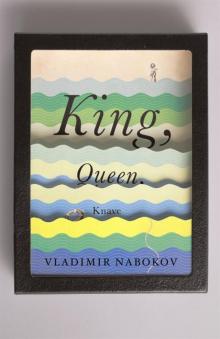 King, Queen, Knave
King, Queen, Knave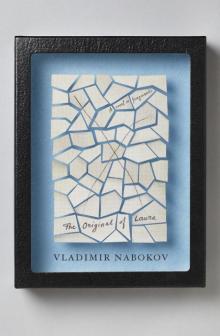 The Original of Laura
The Original of Laura